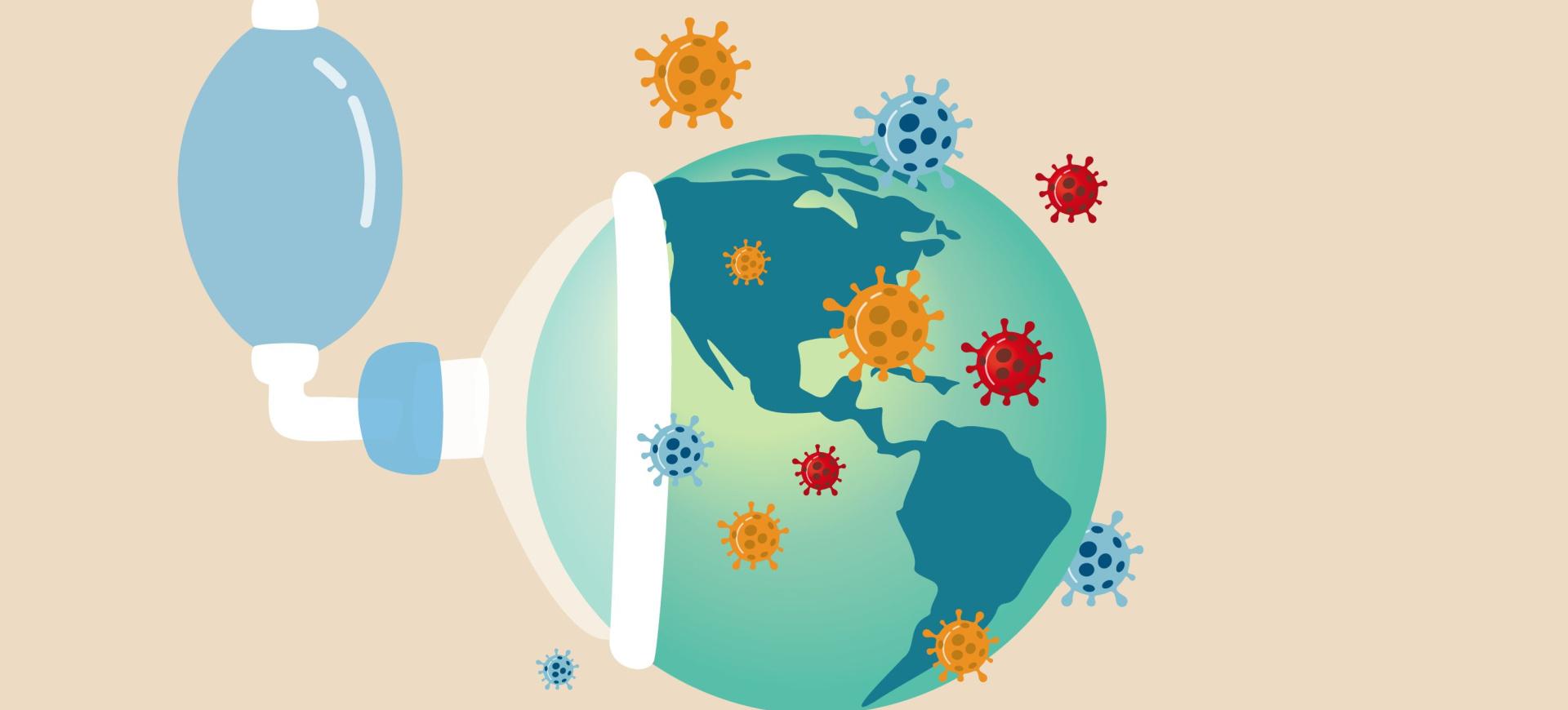A pact for global pandemic readiness
Last year, the G7 under Germany’s presidency introduced the Pact for Pandemic Readiness, which aligns new and existing initiatives to create synergies, maximise outputs and reduce fragmentation – and improve the global landscape for pandemic readiness
By introducing the G7 Pact for Pandemic Readiness in 2022, the G7 decided to strengthen key areas essential for a predictable and rapid response to pandemics, in particular collaborative surveillance and the health emergency workforce.
The G7 Pact for Pandemic Readiness focuses on sustainable action that builds on past and current G7 initiatives while also providing a coordinated contribution of the G7 to strengthen global pandemic readiness. The pact became an integral part of the G7 health ministers’ communiqué adopted in Berlin in May 2022. It was subsequently endorsed by their leaders in the communiqué issued at their summit in Elmau in June 2022.
To ensure continuity, current G7 processes have followed up on the G7 Pact for Pandemic Readiness. At their meeting under Japan’s 2023 presidency in May, G7 health ministers reiterated their support for increasing networking within and between countries and regions in order to strengthen the health workforce and support early detection, swift containment and timely research sharing in response to future infectious diseases and other health threats.
Why was it created?
In the wake of the Covid-19 pandemic, a plethora of new initiatives emerged. Following a network approach, the G7 Pact for Pandemic Readiness aims to better align new and existing initiatives to create synergies, maximise outputs, and reduce fragmentation, duplication and redundancy.
To ensure continuous action and implementation of the pact, G7 partners and relevant stakeholders held two technical meetings in Berlin in October 2022. Based on these discussions, the G7 elaborated on and adopted the Roadmap for Practical Cooperation to advance the G7 Pact for Pandemic Readiness in December 2022. Along with 20 specific contributing activities, the roadmap includes four key areas: sustainable and coordinated funding for collaborative surveillance and a public health emergency workforce to prepare the world for future pandemics; a strong health emergency workforce network connected to centres of expertise; up-to-date training programmes for collaborative surveillance and predictable rapid response; and engagement in communities of practice for collaborative surveillance.
In September 2022, the Pandemic Fund, hosted by the World Bank, was established to provide a dedicated stream of additional, long-term funding to strengthen preparedness, prevention and response capabilities, particularly in low- and middle-income countries. By aiming to address critical gaps through investments and technical support at the national, regional and global levels, the Pandemic Fund also addresses the four key areas of the G7 Pact – leveraging its goals. In particular, the First Call for Proposals focused on strengthening disease surveillance, laboratory capacity and the public health workforce, thus highlighting the need for action in these areas. The Pandemic Fund has already mobilised $1.6 billion, of which $338 million will flow into 19 projects to strengthen capacity building through the First Call for Proposals. But we must continue to invest in strengthening PPR capacities. I call on partners to contribute to the Pandemic Fund to fill the gaps in pandemic preparedness and response.
The concept of the Global Health Emergency Corps launched at the World Health Assembly in May this year also builds on the aims of the G7 Pact. The GHEC fill gaps through enhanced regional and global solidarity mechanisms to support countries in developing their national capacities. The aim is to be able to call on high-quality, interoperable surge teams and experts when needed.
The launch of the International Pathogen Surveillance Network, in May this year, is another milestone for bringing forward the G7 Pact’s key areas, in particular collaborative surveillance. The IPSN is a global network of pathogen genomic actors, hosted by the World Health Organization’s Hub for Pandemic and Epidemic Intelligence in Berlin. The hub is predominantly financed and provided with technical support by Germany and other G7 partners. The IPSN’s ambitious goal is to give every country access to pathogen genomic sequencing and analytic capacities as part of its public health system.
With regard to the negotiations of the WHO convention, agreement or other international instrument on pandemic prevention, preparedness and response, Germany is advocating for strong content in line with the G7 Pact for Pandemic Readiness. Early investigation of outbreak signals and integrated surveillance to detect new variants and pathogens are of utmost importance. As outlined in the G7 Pact, this requires up-to-date curricula as well as common standards and competencies across countries, reflecting an interdisciplinary approach for pandemic preparedness.
In reforming the International Health Regulations, Germany actively supports better implementation of the core capacities and improved global cooperation as part of the proposed amendments to the IHR. This will have lasting effects on collaborative surveillance as a whole.
The commitment of G7 leaders in 2022 to support at least 100 low- and middle-income countries in implementing the core capacities required in the IHR is another component of the G7 Pact, which aims to stimulate global pandemic preparedness.
Ongoing discussions
By initiating the G7 Pact for Pandemic Readiness in 2022 and bringing forward its implementation, Germany gave an important impulse for making progress in pandemic prevention, preparedness and response more generally. This year, 2023, has brought other key processes such as the high-level meetings on pandemic prevention, preparedness and response and on universal health coverage as well as on tuberculosis at the United Nations General Assembly in September, the ongoing complex negotiations of the WHO convention or agreement, and the discussions on a potential medical countermeasures mechanism. The G7 Pact for Pandemic Readiness, introduced by Germany and agreed upon by the G7 partners during its G7 presidency in 2022, significantly contributes to these ongoing discussions in the global landscape for pandemic readiness.












